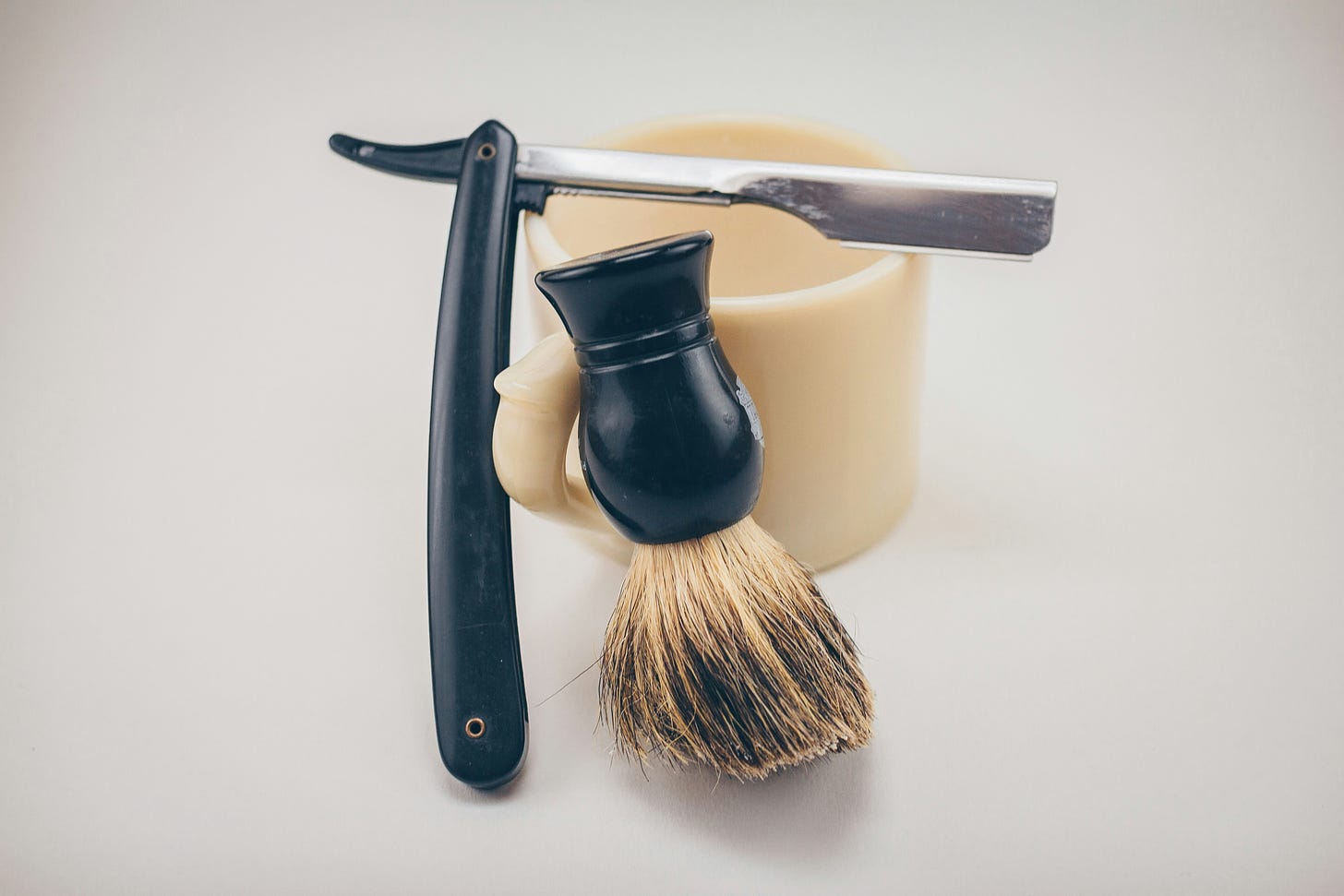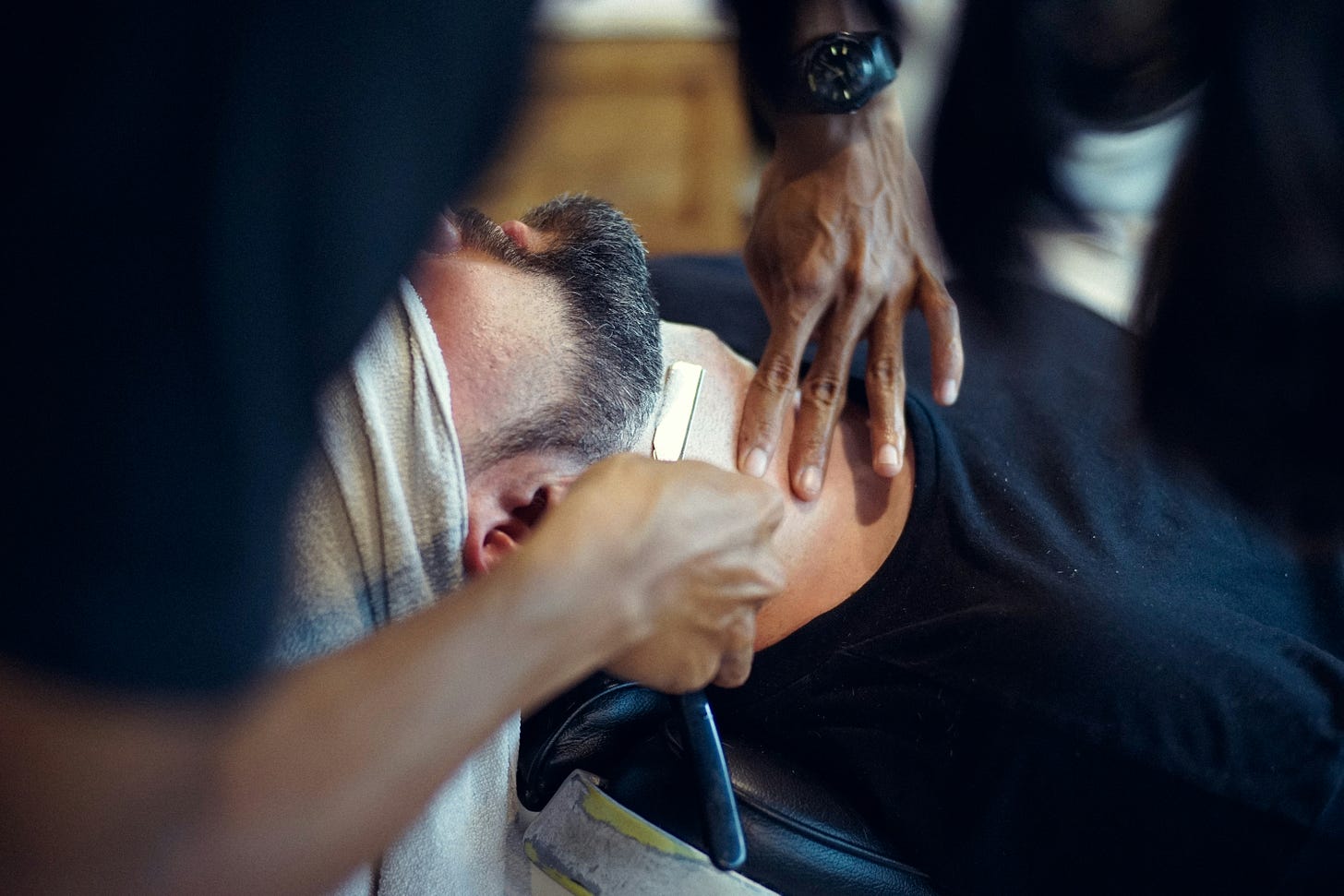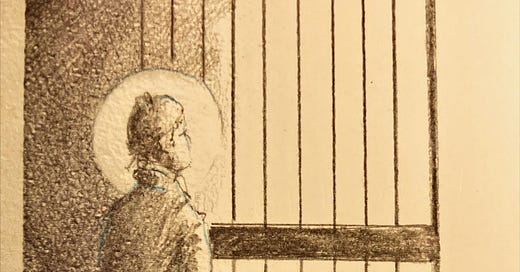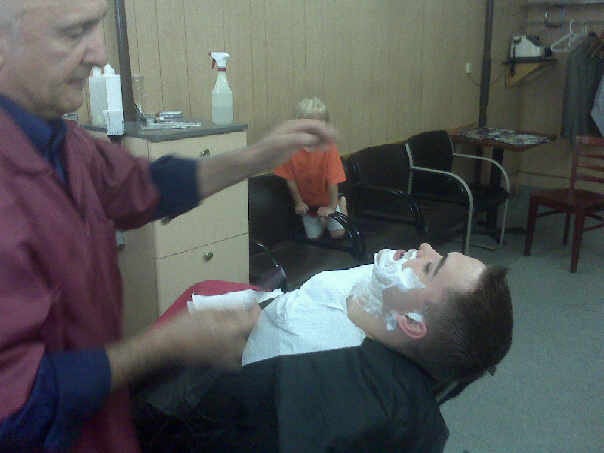Vignette: A Night Shelter
Giannis entered the building with the considered yet clumsy stumble of a man accustomed to plodding around East London while inebriated. He kept warm with a leather jacket over his stained sweater, yellowed with bile brought up from a long day of drinking. His beverage of choice was Skol Super, a lager with a very high alcohol content at 8% ABV.
It was January, the time of year when people didn’t care about homelessness anymore, when the charities stopped saying, “Homelessness isn’t just for Christmas," and when offers to volunteer dried up. It was the part of the year when the shadowlands of the capital became just a little bit darker, when the snow turned to slush, and the ‘winter’ lights became an irritating reminder of another year gone.
Giannis didn’t want food. He rarely did. He usually went straight upstairs to fall asleep on the blue camp beds, lined with red sleeping bags. Today, however, he needed something different.
“Shaver! Give me, please."
One of the night shelter volunteers retrieved a pack of orange Bic disposable razors from the store cupboard. They were a part of a large donation of toiletries that another church had gathered during Advent. Razors were in regular demand in the shelter, with our predominantly male clientele, and these donations meant that the local pharmacies were a bit less likely to be pilfered.
As the razor was placed into Giannis’ trembling hand, there was more than a hint of trepidation from the watching volunteers as he prepared to move the blade across his face. Whether it was a desire for dignity or just wanting to rid the irritation of sharp stubble, there was a determination rarely seen in Giannis’ actions. The presence of the safety blade in his hand seemed to have broken his stupor. While sitting on the closed lid of the single-person toilet, he carefully moved his hand towards his face as he tried to remove the hairs, centimetre by centimetre.
He managed to get half a sideburn. He looked to his left, away from the mirror, and into my eyes: one of the nervous onlookers in the corridor. He lifted his hand towards me, reaching out with the razor.
“John - you help.”
Dutifully, but feeling relieved, having feared not only the cuts to Giannis’ face but also the prospect of clearing up spilt blood, I washed my hands and took over the shaving duties.

Vignette: Two Barbershops
The shaving of a man’s face can range from a quick once-over with an electric shaver to an elaborate ritual with a badger-hair shaving brush, luxurious soap, and a cut-throat razor. Some men shave daily; some leave it for a few days; others work their way around carefully crafted facial hair. Each man becomes familiar with how his hair grows. He knows the angles at which to get the best shave. He knows his own face. And he learns about his soul, looking at the man in the mirror. Every time he shaves, he is confronted—face to face—with himself. Sometimes, he gets help.
I remember my first barbershop shave. I was staying with my friends Billy and Annalise in New York City, where they were the Salvation Army officers. There was a classic barbershop around the corner from their Salvation Army apartment in Times Square. Billy and I took some time out for our stubble to receive some attention. The memories are a bit faded, but I remember my excitement. I know the barber was attentive and deliberate. I remember feeling safe, and I remember feeling well-looked after. The hot towel on my face felt cosy. The aftershave stung and surprised me. As we left the barbers, I walked that little bit taller with the confidence of a well-groomed man.
I had another barbershop shave in Barking, East London. It was a different experience. Each time the jiggle-bellied barber pinched my face with greasy fingers to make my skin taut, my heart rate leapt with nerves. Sweat dripped from my forehead. Partway through, I raised my hand, asking him to pause. I had to get fresh air. Whether the heat of the summer day or my growing apprehension that he focused more on conversing in rapid Urdu with his friend than on my face, the notion of him wielding a bare blade near my throat conjured images of an inadvertent Sweeney Todd scenario. My carotid artery was in the hands of someone I didn’t trust. I brought the experience to an end, paid in full, and sprinted home to finish the job with my dependable Gillette Mach 3, operated by hands I knew I could rely on: mine.
Vignette: The Hospital
The last person whose face I shaved was my father's. He had been admitted to the hospital and told he would not be returning home. Nevertheless, each day, while he still had the strength, he would perform his familiar ritual himself; an electric shaver in one hand, the other hand occasionally stretching his skin to make sure he got every whisker. As he weakened, he asked his family to do it for him. It got so that he could no longer ask. Each day, we shaved his face. He gave gentle smiles of acknowledgement and paternal appreciation, which got more subtle as life slipped away. A shave was my final act of service to him while still alive.
Threshold: the paradigmatic nature of shaving
Italian philosopher Giorgio Agamben uses a method called the paradigm. This involves looking at specific objects, actions or situations that help us understand bigger ideas such as how society works, or the human condition. He uses these common examples to show dynamics that are often hidden in society. Agamben’s approach, therefore, invites us to scrutinise the mundane yet profound act of male grooming, specifically shaving the face, as a paradigmatic expression of the human desire for dignity and self-respect.
The perceived significance of shaving varies significantly across cultures. In societies where facial hair symbolises wisdom or cultural identity, attributing a universal paradigmatic nature to shaving might overlook the cultural relativity of grooming practices. Nevertheless, whether enacted in the context of homelessness, luxury, or even in the face of mortality, shaving serves as a small but potent indicator of the need for agency in how we present ourselves to the world. In the realm of homelessness, where people grapple with the erosion of societal recognition, the act of shaving becomes an assertion of personal dignity. In contrast, the luxury of a barbershop experience underscores the inherent desire for self-respect and care, transcending mere grooming to become a ritual of personal affirmation. Furthermore, even in the proximity to death, the ritual persists as a near-sacred ceremony, a last vestige of dignity in the face of mortality. Shaving, thus, emerges as a paradigmatic act that signifies an innate human need for control of self-presentation. It is an implicit acknowledgment of the sacred nature of face-to-face encounters.
The act of shaving as a paradigmatic act of service helps us to understand that social interactions are delicately complex. Theologian Sam Wells appropriately emphasises the importance of being with people in conditions of powerlessness rather than merely doing for them. There is a tension, since doing for others is sometimes a prerequisite for genuine togetherness. Trust is necessary, especially in the midst of power imbalances and contrasting vigour. It is produced, on the one hand, in the openness to depending, and on the other, the willingness to be depended upon. Surrendering to another carries obvious risk, while being surrendered to exposes the ‘helper’ to potential jeopardy. It can be costly to be depended on. The consequences may be significant, especially in the application of the razor and the vulnerability to its edge. The reward, however, is profound in the possibility of togetherness.

For the Christian, these acts of service, which foster togetherness, are deeply rooted in the tradition of the Works of Mercy outlined in Matthew 25:31-46. This biblical framework not only underscores the significance of addressing the needs of others as an expression of devotion to Christ but also offers a profound opportunity to encounter Him directly. As Christ states in verse 40, 'just as you did it to one of the least of these who are members of my family, you did it to me.' The similarities with the traditional Works of Mercy—feeding the hungry, clothing the naked, and caring for the sick—and the intimate act of shaving another person, especially when they are unable to do so themselves, illuminate this action as an expression of a theological paradigm. There exists a sacred continuity across time and circumstance, bridging the way Christ described His presence in the least of these with His presence today in situations where people embody similar conditions of powerlessness to the scenarios described in Matthew 25.
I look back at the two men’s faces I have shaved: Giannis, a stranger who sought my help, and my father, the person left in the world who knew me the longest. For Giannis, it was helping to usher in the possibility of a new life, as he eventually found Christ and freedom from alcohol dependency. For my father, it was accompanying him during those hours of continuity and discontinuity between earthly and heavenly life. These corporeal acts of service extend beyond mere kindness and benevolence, to acknowledge others as places of Jesus Christ’s presence. Be it with a stranger seeking salvation or my father journeying from the temporal to the eternal, in the intimate moments shared with them, I was also with Christ.






Very thought provoking John. I was reminded of Jesus washing the disciples feet- and his inclusion of Judas in his universal love. I am also glad that you had the opportunity for such a profound experience with your dad in his last days. God bless
Love the narrative style of this piece 👌